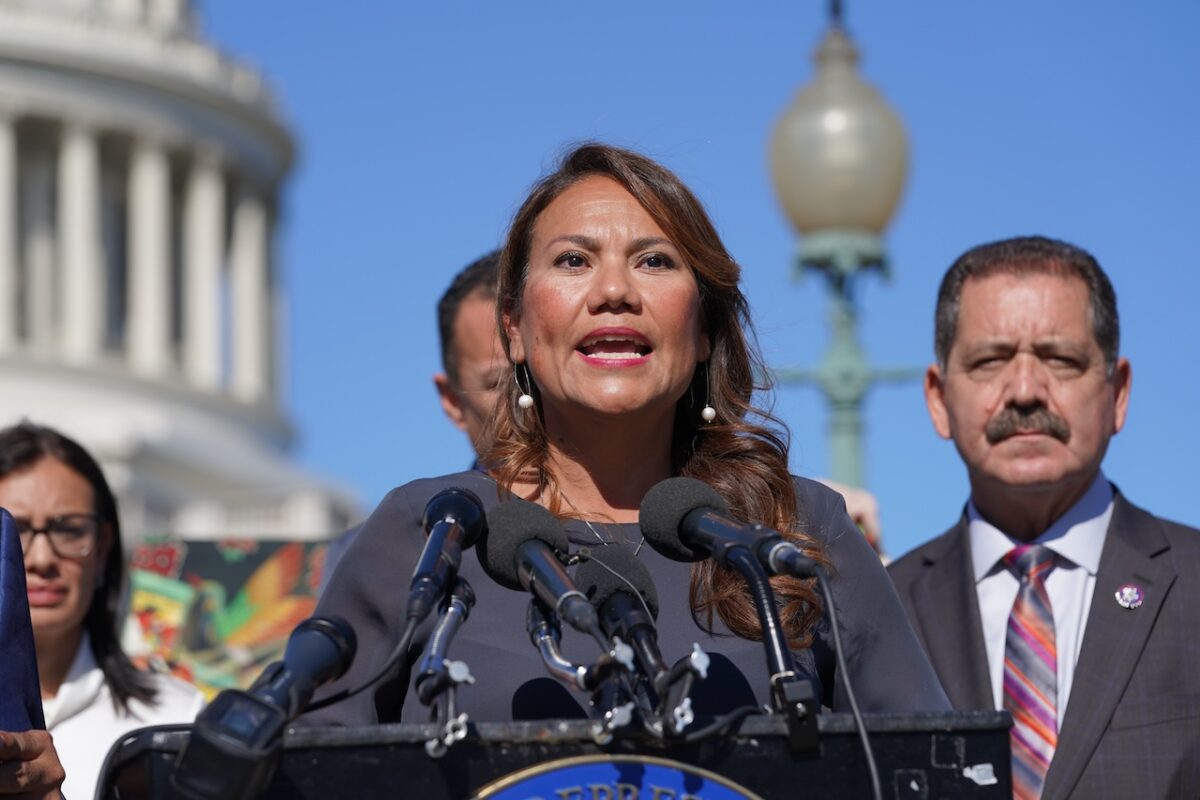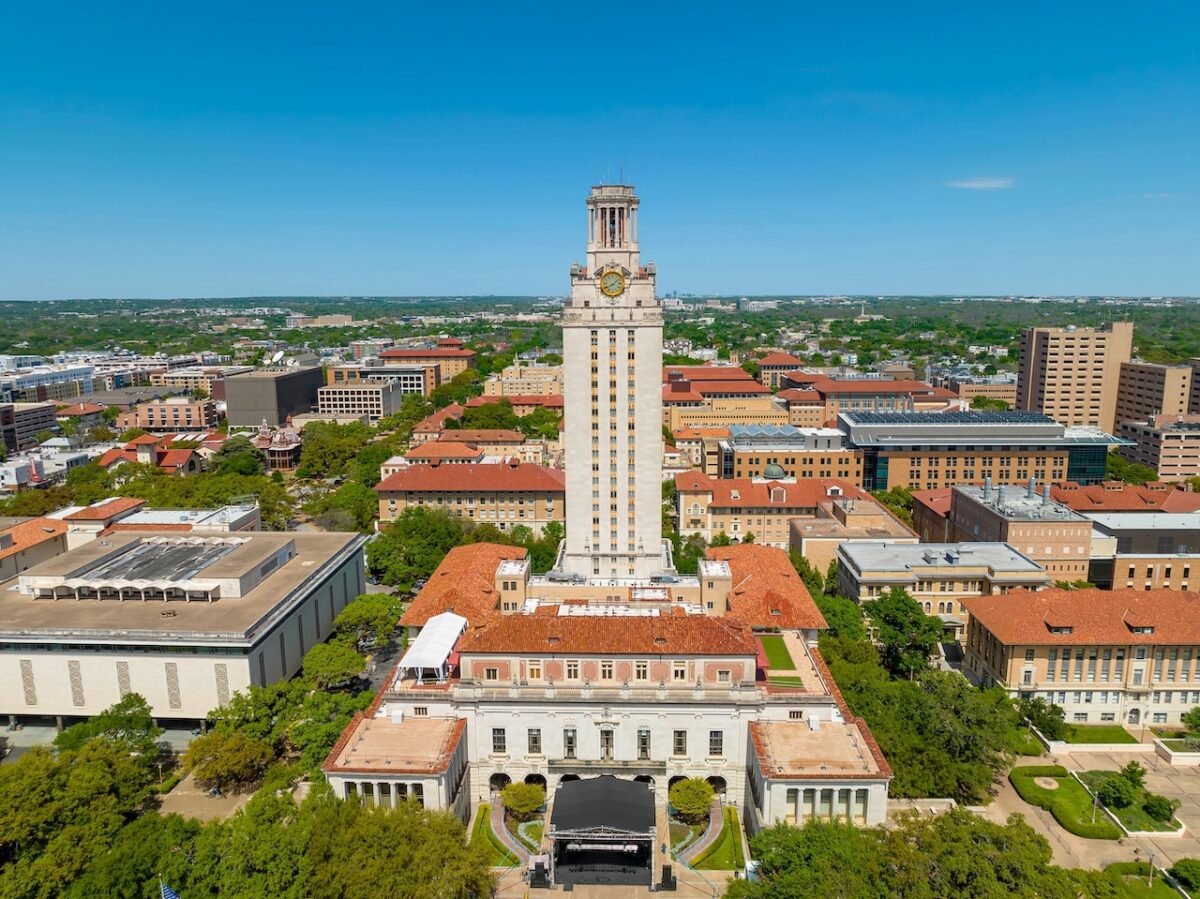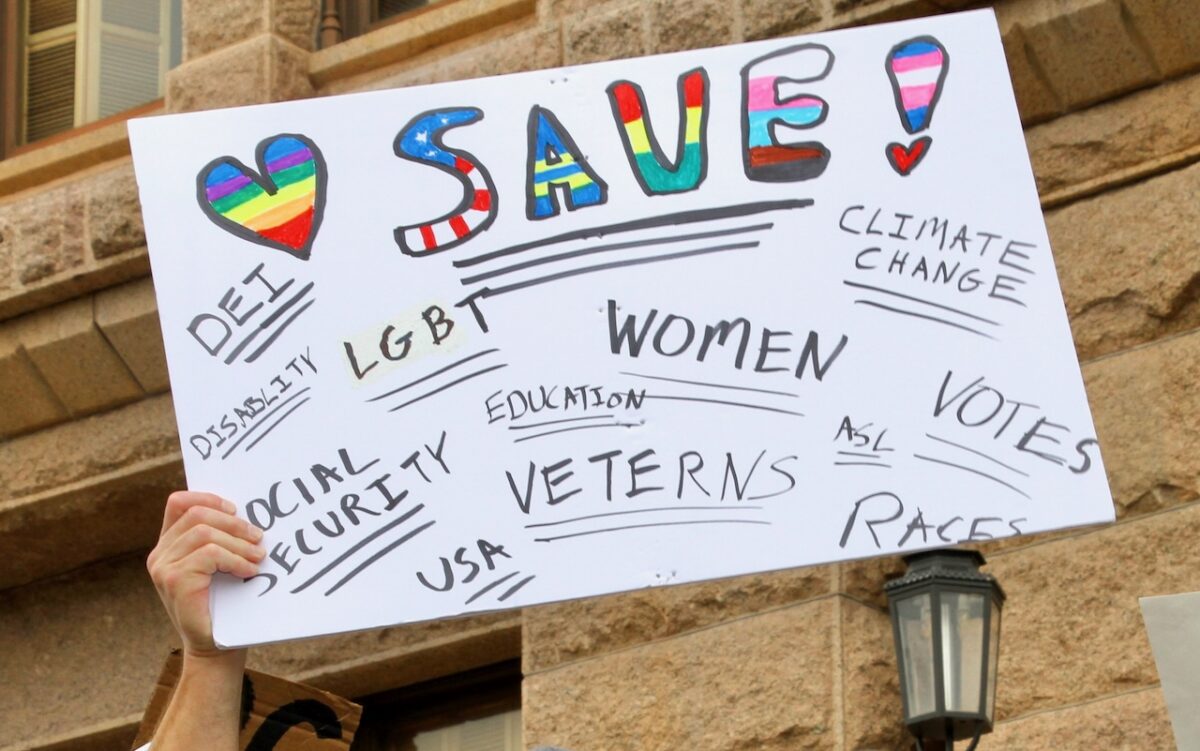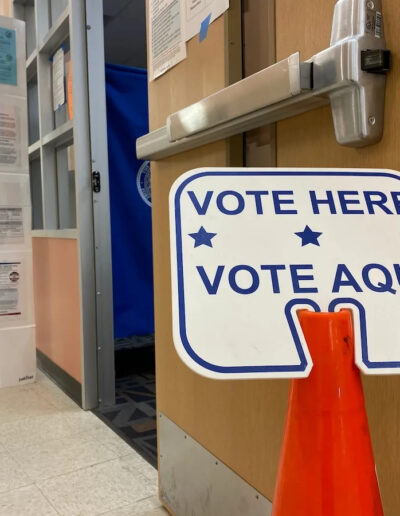
Originally published by The 19th
Last June, a new federal law granted pregnant people across the country additional protections in their workplaces. But as of Wednesday, those protections have now ended for government workers in the state of Texas.
A federal judge in Texas ruled last week that the legislation, known as the Pregnant Workers Fairness Act, cannot be enforced in the state because it was passed as part of a spending package that was voted on without a majority of members of Congress present. The bill was passed in December 2022 with 205 members of the House casting votes in person; the rest of the votes were cast on behalf of absent members, known as voting by proxy.
The House needs 218 members present to reach quorum as defined in the Constitution. Judge James Hendrix from the United States District Court for the Northern District of Texas ruled that Congress didn’t reach a quorum for that vote, meaning the law cannot be enforced in Texas. The block applies to workers employed by the state and its agencies, not private employees or federal employees.
Advocates worry, however, that it could set a precedent that would chip away at pregnant workers’ rights in the workplace and call into question all laws passed with proxy votes. Congress passed a rule during the COVID-19 pandemic allowing members to vote by proxy to meet the quorum requirement.
The Texas decision could also come to impact other bills passed in the spending package, including the PUMP Act, which expands workplace protections for lactating parents. Both the PUMP Act and the Pregnant Workers Fairness Act passed with bipartisan support.
The Department of Justice is expected to appeal the Texas court’s decision.
“An attack like this on pregnant workers is going to have all sorts of ripple effects on extremely popular proposals and measures that passed with overwhelming bipartisan support and I think will not go unnoticed by the public who expects their elected representatives to look out for individuals who are in vulnerable situations, like when they’re pregnant and lactating,” said Elizabeth Gedmark, the vice president at A Better Balance: The Work & Family Legal Center, the organization that initiated the push a decade ago to pass additional protections for pregnant people at work.
That work culminated with the passage of the Pregnant Workers Fairness Act, which expands the kinds of conditions that employers must accommodate workers for relating to pregnancy — everything from fertility treatments to morning sickness to pregnancy loss and postpartum conditions, including postpartum depression and mastitis, an infection of the breast tissue that can occur when breastfeeding. It also includes time off to access abortion.
Previously, employees also had to prove that they should be accommodated. Now employers have to engage with workers to provide the accommodations as long as it’s not too costly or burdensome on the business. The law protects those who work for companies with 15 or more employees.
But shortly after the bill was signed into law, Texas Attorney General Ken Paxton filed a lawsuit against the federal government, saying it could not enforce the Pregnant Workers Fairness Act due to the quorum rule. The lawsuit targeted the entire omnibus spending package but singled out the Pregnant Workers Fairness Act because it applied directly to Texas state employees.
“Ken Paxton is picking and choosing which laws he wants to apply to the state of Texas, even when those laws have been passed through the accepted democratic process,” said Liz Morris, the deputy director of the Center for WorkLife Law, which worked on the legislation. “It undermines democracy.”
Paxton argued that Congress “acted egregiously” when it passed the $1.7 trillion spending package on December 22, 2022. Many members had already left Washington, D.C., for the holidays. In his opinion, Hendrix concurred, saying the House “sought to evade the Constitution’s limits by counting absent members as present in order to conduct business.”
“Former Speaker Nancy Pelosi abused proxy voting under the pretext of COVID-19 to pass this law, then Biden signed it, knowing they violated the Constitution. This was a stunning violation of the rule of law,” Paxton said in a statement last week.
For now in Texas, it means state employees, and particularly women of color who stood to benefit the most from the new legislation, are locked out of its protections. Low-income workers, the majority of whom are women of color, work in jobs that already have high turnover, limited protections and next to no time off to care for children, creating a culture where workers are often fired rather than accommodated. The Pregnant Workers Fairness Act, through its expansive time off protections, effectively created access to unpaid leave for workers who had none at all. Since the law was passed last summer, Gedmark said A Better Balance has heard from people across the country who are using the law’s protections to get immediate, needed accommodations.
“We would hear from folks who were still getting pushback from their employers because the law was not in effect yet, and then in many cases overnight, come June 27, they started changing their tune,” Gedmark said. “We so often hear from low-wage workers, from women of color who are disproportionately impacted … and need the Pregnant Workers Fairness Act the most because so much of the law’s power is going to happen before court.”
The law’s protections for abortion add another wrinkle in Texas, which has one of the most restrictive abortion bans in the country. There, abortions are banned after six weeks gestation.
Morris said Paxton drove the fight to pass abortion restrictions in the state and is now “pouring even more state resources” into restriction protections for pregnant workers.
“[Texas has] taken away the right to an abortion and now they are making it much harder for pregnant people to keep their job,” Morris said.




















